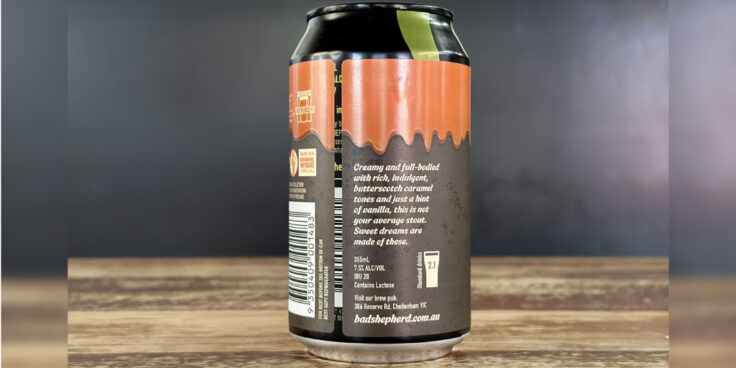
Pregnancy labelling bites hard for breweries

As the brewing industry approaches the 31 July transition date to mandatory pregnancy labelling, small breweries are facing the costly realities of the changes.
Faced with costs of $90,000 to replace existing can stocks, Melbourne’s Bad Shepherd Brewing has instead opted to overprint its cans with new labels.
Co-owner Diti Hales told Brews News that the alternative saves $60,000 but has other challenges for the brewery.
“The total cost of writing off the cans and ordering new cans would have been around $90,000,” Diti said.
“The over-stickering exercise is costing us $30,000, plus the potential impact of our brand perception at the shelf.
“We’ll let people know on the label and through digital and cellar door communications why we’re over-stickering however, at the shelf, there’s potentially an immediate impression of the product before they even pick it up.
“This is obviously very hard to quantify.”
Hales said that while the brewery supports education about responsible drinking and the related risks of alcohol, the decision seems piecemeal.
“We believe that risks of consumption of alcohol when pregnant is not the only risk area to communicate and it’s interesting the health warning is only focussed on this segment of the drinking population,” she said.
“The impact of consumption of alcohol on mental health, domestic violence, cancer, liver damage etc seems to have been overlooked in this regard.
“Also the execution of this rollout was applied without due consideration for the financial impact to small businesses who now have to spend tens of thousands of dollars updating their can artwork – likely with future changes coming again soon such as nutritional information panels.”
She said it is just another cost that breweries have to find somehow to stay compliant.
“It is off the back of CDS [container deposit schemes], back-to-back unprecedented increases to excise, grain prices increasing between 10-15%, rising utility costs, CPI related increases across the board across the supply chain and continues wage pressures – all the while margins continue to shrink,” Diti said.
While the brewery has worn the costs of over-labelling its cans, Diti said the challenge now is to communicate with stockists and beer drinkers to try to avoid fallout from the impression the cans may have.
The brewery has embarked on a consumer campaign to explain the reasons for the labels, including information on its website.
“Rather than destroy thousands of unused pre-printed cans, we’ve decided to re-purpose them for different products, with a new updated label sticker and of course, refreshing fresh beer,” the post says.
“We think this is the most sustainably responsible solution to this problem, from both an environmental and financial point of view.
“A new label, stuck over a printed can. It might look a little odd, but it’s helping keep the price of our product down and avoiding waste. We think that’s a solid win for us, you, and the environment.”



